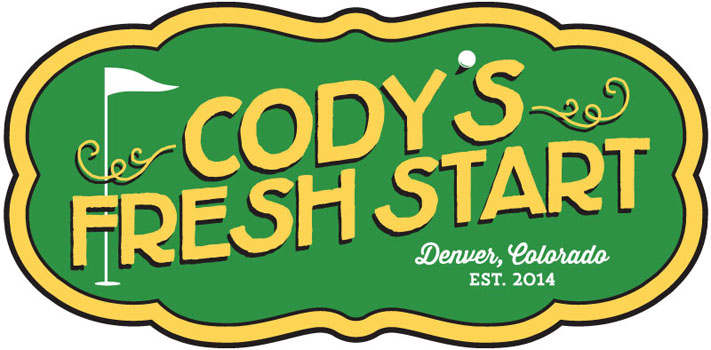
There is no right way to overcome addiction or one single pathway that works for everybody. No option ought to be excluded if it works for even just one individual and their family, as should none be forced upon those for whom they do not work.
We truly need all of our existing options and alternatives to be equally available and widely understood as we continue to seek out even more.
Some of the answers are surprisingly similar across addictions, whether the cause is gambling or alcohol or opioids. There is, however, a crucial difference with opioids, mainly heroin and prescription pain pills, because relapse can be fatal. Treatment isn’t the ultimate “fixer”, but provides a stabilizing opportunity. It offers a timeout to begin the years of work which are necessary for sustained recovery.
It may take several stints in treatment before recovery takes hold. Relapse is part of the disease of addiction, and does not indicate treatment didn’t work.
The treatment system for substance use disorders is comprised of multiple components, generally including the following
INPATIENT AND RESIDENTIAL SETTINGS
Treatment can be provided in inpatient or residential settings, where the patient stays in specialized units in a hospital or addiction treatment facilities. Short-term residential treatment is most common, stays of about 30-60 days, with a focus on detoxification, as well as providing intensive treatment with individual and group counseling. This type of treatment is preparation for a return to community based settings, out-patient programs, and transitional or sober living arrangements. Long-term residential treatment has length of stays as long as 6-12 months and is relatively uncommon, mainly because health insurance seldom covers long-term treatment. These long-term programs focus on helping individuals change their behaviors in a highly structured setting. Please see Links/Resources on our website for information on residential treatment centers in Colorado at https://www.codysfreshstart.org/links/.
INTENSIVE OUTPATIENT PROGRAMS
These programs (commonly called IOP) have people attend very intensive and regular treatment sessions multiple times a week early in their treatment for an initial period. Individuals often step down into regular outpatient treatment, which meets less frequently per week to help sustain their recovery. One of the best known stimulant use disorders treatments is the Matrix Model, an outpatient treatment approach that was developed in the 1980s. You can learn more about it on the National Institute on Drug Abuse website at https://www.drugabuse.gov/publications/principles-drug-addiction-treatment-research-based-guide-third-edition/evidence-based-approaches-to-drug-addiction-treatment/behavioral-3.
MEDICATION-ASSISTED TREATMENT
Using medicine to treat addiction is referred to as Medication-Assisted Treatment (MAT). In this model, medication is used in combination with counseling and behavioral therapies. Medications can reduce cravings and other symptoms associated with withdrawal by occupying receptors in the brain associated with using that particular drug, block the rewarding sensation that comes with using a substance, or induce negative feelings when a substance is taken. MAT has been primarily used for the treatment of opioid use disorder, but is also used for alcohol use disorder and the treatment of some other substance use disorders.
- Medications used for alcohol addiction are acamprosate (Campral), disulfiram (Antabuse), and naltrexone (Vivatrol). (https://www.drugabuse.gov/publications/principles-drug-addiction-treatment-research-based-guide-third-edition/evidence-based-approaches-to-drug-addiction-treatment/pharmacotherapi-1)
- Medications used for tobacco addiction are bupropion (Wellbutrin) and varenicline (Chantix). (https://www.drugabuse.gov/publications/principles-drug-addiction-treatment-research-based-guide-third-edition/evidence-based-approaches-to-drug-addiction-treatment/pharmacotherapi-0).
- Medications used for opioid addiction are methodone, buprenorphine (Suboxone) and extended release injectable naltrexone (Vivatrol). (https://www.drugabuse.gov/publications/principles-drug-addiction-treatment-research-based-guide-third-edition/evidence-based-approaches-to-drug-addiction-treatment/pharmacotherapies).
- There are no other FDA-approved medications for treatment, but there is some promising research being done on a vaccine for heroin and fentanyl addiction. The new vaccine prevents heroin and fentanyl from ever reaching the brain so there is no high, no overdose and no death. In fact, in pre-clinical trials, the vaccine eliminated cravings. It is in Phase 1 trials at the world famous Scripps Research Institute in La Jolla, California, led by Dr. Kim Janda, who developed the vaccine. (http://time.com/3654784/why-youve-never-heard-of-the-vaccine-for-heroin-addiction/).
INDIVIDUAL AND GROUP COUNSELING
Individual counseling often focuses on reducing or stopping the substance abuse, building coping skills, adherence to a recovery plan, and social and family outcomes. Group counseling provides social reinforcement for the pursuit of recovery. Counselors can assess, plan treatment, and offer a variety of therapies. Some of the common therapies are cognitive-behavioral therapy, contingency management, motivational enhancement therapy, and 12-step facilitation therapy.
RECOVERY SUPPORT SERVICES
These are non-clinical services used with treatment to support individuals in their recovery goals. These services are often provided by others who are already in recovery. They can included transitional living situations (sober living), mutual support groups like AA or NA and other 12-step programs, recovery/sober coaches, faith-based support like Celebrate Recovery®, and alternative 12-step support groups like SMART Recovery®. While mutual support groups do not work for everyone, they are a fundamental component of the addiction treatment system.
SPIRITUAL PSYCHOLOGY
More and more, the new face of residential treatment uses the Spiritual Psychology approach, focusing on applying love to the hurt, keeping one centered in the present, and taking the proper steps in working with Spirit to achieve a desired goal. Spiritual Psychology is the study and practice of the art and science of conscious awakening. This approach involves healing the underlying core issues that cause addiction, which includes healing on the physical, mental, and emotional levels in service to the deeper revelation of being a spiritual being.
There is no one treatment or combination of treatments that works for everyone. Medication-assisted treatment combined with recovery support is at the forefront of the new treatments being researched. But one without the other does not work. There is no magic cure without the work of recovery.
Mary Cucarola — November 1, 2016
References
“Treatments for Substance Use Disorders.” Substance Abuse and Services Mental Health Administration http://www.samhsa.gov/treatment/substance-use-disorders
“Spiritual Psychology.” University of Santa Monica, Programs in Spiritual Psychology. https://www.universityofsantamonica.edu/why-usm/spiritual-psychology/
“Peer Support and Social Inclusion.” Substance Abuse and Services Mental Health Administration. http://www.samhsa.gov/recovery/peer-support-social-inclusion
“Evidence-Based Approaches to Drug Addiction Treatment” National Institute on Drug Abuse. https://www.drugabuse.gov/publications/principles-drug-addiction-treatment-research-based-guide-third-edition/evidence-based-approaches-to-drug-addiction-treatment
“Research on Vaccine for Heroin Faces Challenges” Partnership for Drug-Free Kids http://www.drugfree.org/news-service/research-vaccine-treat-heroin-addiction-faces-funding-challenge
